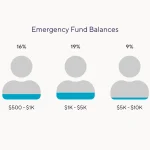
Currency trading and understanding the exchange rates is of vital importance for companies. They encounter this currency exposure every time they import and sell products overseas.
Currency prices are determined by supply and demand forces, which in turn are affected by numerous external influences like market psychology, interest rates and news events. All these can have an effect on currency pricing.
Supply and Demand
Currency values are determined by market forces such as supply and demand. All four major global currencies – dollar, euro, yen and pound – are traded on the foreign exchange market, which is the world’s largest and most liquid financial marketplace.
Every day trillions of dollars change hands on this global market that remains open 24 hours a day due to cooperation among currency traders. When Asia closes for business day at 5 p.m. ET, currency traders pass their positions onto European traders who then forward them onto U.S. dealers ensuring the market truly represents all corners of the globe.
Economy and political events often influence supply and demand of currency within a nation. If, for example, its government implements policies that stimulate its economy, other nations may desire more of that currency, leading to its price rising as more countries want more of it. Investors frequently study fundamentals like economic growth or national budget deficits or surpluses to gauge which direction a currency should move.
Interest Rates
Interest rates play an integral part in currency valuation. Countries with higher rates attract more foreign investment, which boosts exports and leads to greater demand for their currency.
Currency traders also employ interest rate differentials as a strategy for currency trading. When one currency’s interest rates differ significantly, traders can borrow the lower-interest currency and purchase its counterpart with higher rates – this strategy is known as “carry trading.”
Additionally, a country’s balance of trade between imports and exports can have a profound effect on its currency’s value; those which export more than they import tend to have stronger currencies. When political or economic instability strikes, global money managers may shift capital away from risky currencies into safe haven ones like euro and US dollar, increasing their demand and prices accordingly – an effect compounded when central banks act to manage inflation by increasing or decreasing interest rates.
Central Banks
Foreign exchange markets are global marketplaces where currencies are traded. They play an essential role in society and economy by providing currency conversion services and facilitating global trade across borders. Participants in these marketplaces include central banks, commercial companies, investment management firms, hedge funds and retail forex dealers – each currency quoted against another.
Bilateral exchange rates are the most frequently quoted against the US dollar; an USD/GBP quote indicates how many US dollars it would take to buy one pound of British sterling.
Central banks can control an exchange rate system through market interventions, including manipulating short-term interest rates. Such policies tend to make headlines in the news and seek to influence its direction.
Forward Transactions
The foreign exchange market plays a pivotal role in international commerce. Multinational companies rely on it as an insurance policy against exchange rate fluctuations that could have drastic impacts on operating costs, while individual investors participate for speculation purposes. Currencies are traded against each other using ISO 4217 three-letter codes (e.g. USD/EUR).
Over time, nominal dollar-foreign currency exchange rate fluctuations tend to be offset by inflation rates – or purchasing power parity – which assumes that goods and services produced in one country are priced equally with those from another.
If fluctuations in the foreign exchange market threaten your international payments, a forward contract can help secure an exchange rate for future transactions or transactions requiring more than one currency exchange rate. Furthermore, unlike currency futures and options contracts which typically require upfront payment before proceeding with transactions.

